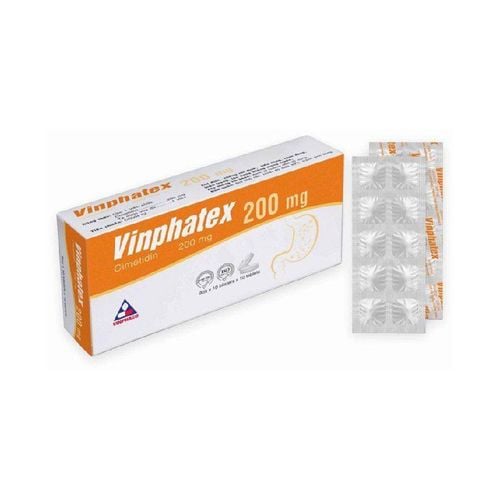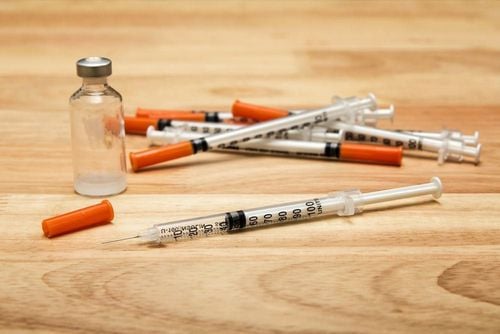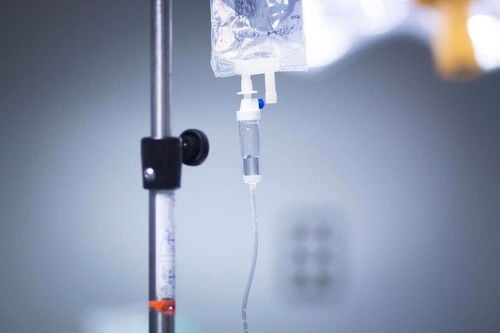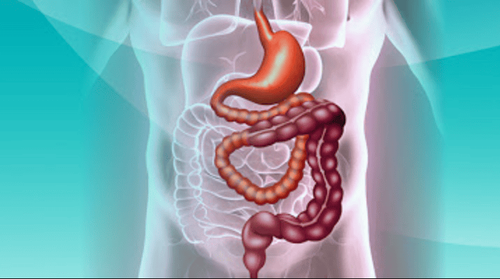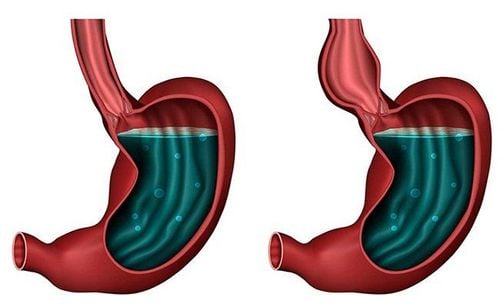This is an automatically translated article.
The article was professionally consulted with Specialist Doctor I Vo Thi Thuy Trang - Gastrointestinal Endoscopy - Department of Medical Examination & Internal Medicine - Vinmec Danang International General Hospital.Short bowel syndrome is a malabsorption disorder whose common causes for extensive bowel resection are volvulus, Crohn's disease, mesenteric infarction, radiculitis, cancer, and congenital abnormalities. Medical treatment of short bowel syndrome is usually parenteral nutrition, oral feeding, and concomitant use of medications.
1. What is short bowel syndrome?
Short bowel syndrome is defined not by the length of the bowel removed, but by the length of the remaining bowel. Accordingly, a patient has short bowel syndrome when the length of this intestine is not more than 120cm. Short bowel syndrome in both children and adults is a malabsorption disorder with common causes for extensive bowel resection being volvulus, Crohn's disease, radiculitis, mesenteric infarction, and cancer. cancer and congenital abnormalities. The jejunum is where most of the nutrients are absorbed and digested. If the jejunum is removed, it will lead to a loss of the absorption zone and significantly reduce the absorption of nutrients. To meet the demand, the colostrum begins to adapt gradually by increasing the length and absorptive function of the cilia, leading to a gradual improvement in nutrient absorption. The ileum is the site of vitamin B12 and bile acid absorption. Severe diarrhea and loss of bile acids are caused when the small intestine is removed more than 100cm. In particular, there is no compensatory adaptation of the remaining jejunum, so reduced absorption of fat, fat-soluble vitamins and vitamin B12 occurs. In addition, bile acids are not absorbed in the colon causing secretory diarrhea.2. What are the consequences of short bowel syndrome?
When the intestine is cut a large amount of length will lead to the following consequences:Diarrhea : The number of stools passed many times in a day, because the length of the intestine is too short, even with normal bowel movements often also made the food pass quickly. Besides, because the reabsorption of water is also severely affected, diarrhea will occur frequently. The patient's body will always be in a state of chronic dehydration. Passing out raw feces, fat: the substances contained in the food have not been digested, leading to the state of raw feces, in which the presence of fat is the most obvious. In clinical practice, patients often present with shiny stools. Malabsorption syndrome: This is the result of loose stools that will lead to a condition in which the intestines reduce the absorption of necessary nutrients for the body. Malnutrition syndrome: is the final consequence that the patient suffers if there is no appropriate treatment.

3. Medical treatment of short bowel syndrome
Treatment of short bowel syndrome has many different methods depending on the patient's condition. In particular, the medical treatment of short bowel syndrome includes the following measures:Diet: the patient needs to divide into several meals. Food composition: ensure adequate supply of protid, lipid and glucid substances which are necessary energy for the body. Type of food: the patient needs to eat crushed, liquid food for easy absorption. Replace fluids and electrolytes as well as nutrients needed by the body by intravenous infusion. Parenteral nutrition is the most important therapy in the care of short bowel syndrome, which is initiated with a standard, 24-hour daily infusion regimen on an inpatient basis. It is necessary to infuse the necessary amount of fluid per day with increasingly shorter infusion times before the patient is discharged from the hospital. This method is called cyclic infusion and allows the patient to be released from the pump for at least part of the day. Treatment and prevention of malnutrition: Specific drug treatment for short bowel syndrome is primarily aimed at reducing gastric hypersecretion and diarrhea. Gastric hypersecretion can be treated with proton pump inhibitors (PPIs) or h2 (H2) antihistamines in the early postoperative period. For the majority of patients, gastric hypersecretion severe enough to cause clinical problems is usually self-limiting. Diarrhea is one of the more consequential problems. When the patient is not eating or drinking, codeine 60mg can be administered intramuscularly every 4 hours. When the patient is able to eat again, use Imodium (4-5 mg every 6 hours) or lomotil (2.5-5 mg 4 times a day). For patients who are resistant to treatment, opiate tincture can be used at a dose of 5-10 ml every 4 hours. In summary, short bowel syndrome is a malabsorption disorder whose common causes for extensive bowel resection are volvulus, Crohn's disease, mesenteric infarction, radiculocolitis, cancer, and congenital abnormalities. born. In addition to the use of drugs, in the medical treatment of short bowel syndrome, the most important thing is to provide adequate nutrients to the patient, through many different ways depending on the patient's condition. Therefore, when there are abnormal signs of the gastrointestinal tract, it is necessary to immediately notify the medical staff for timely intervention.
Please dial HOTLINE for more information or register for an appointment HERE. Download MyVinmec app to make appointments faster and to manage your bookings easily.





